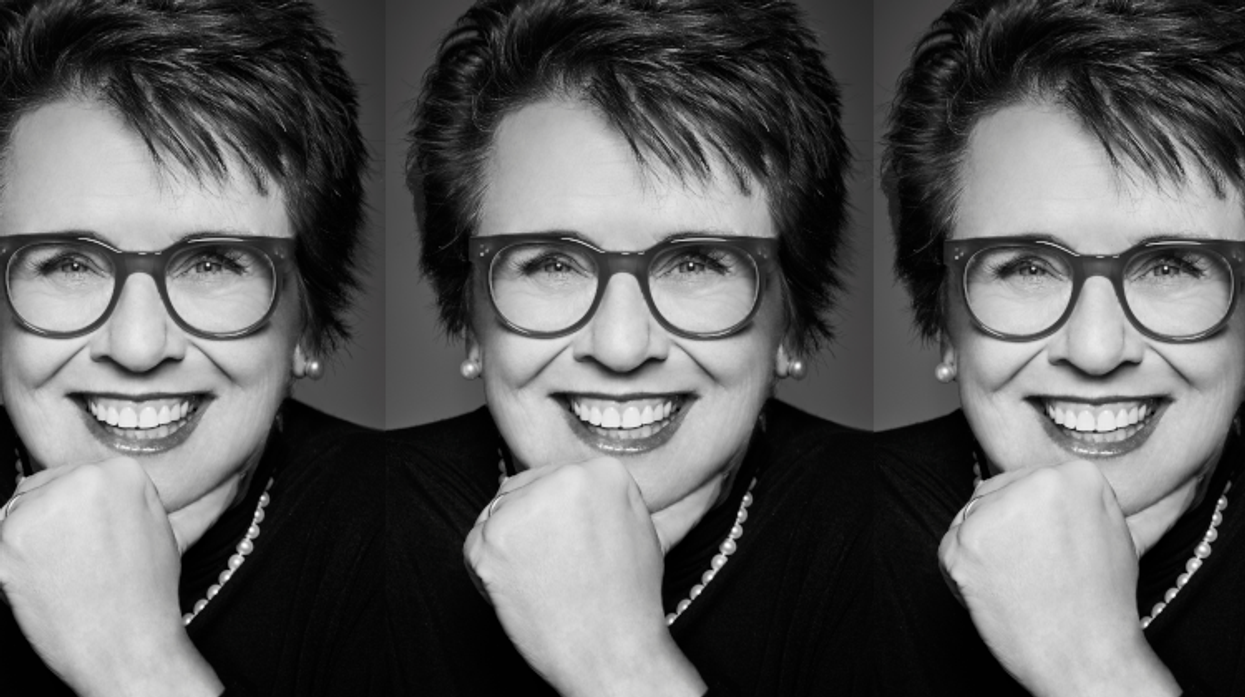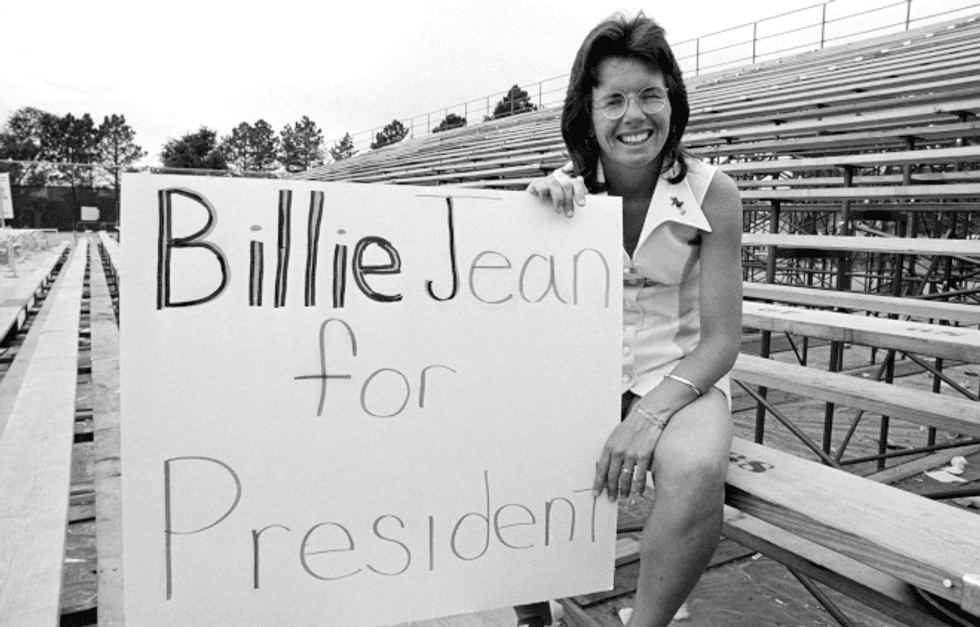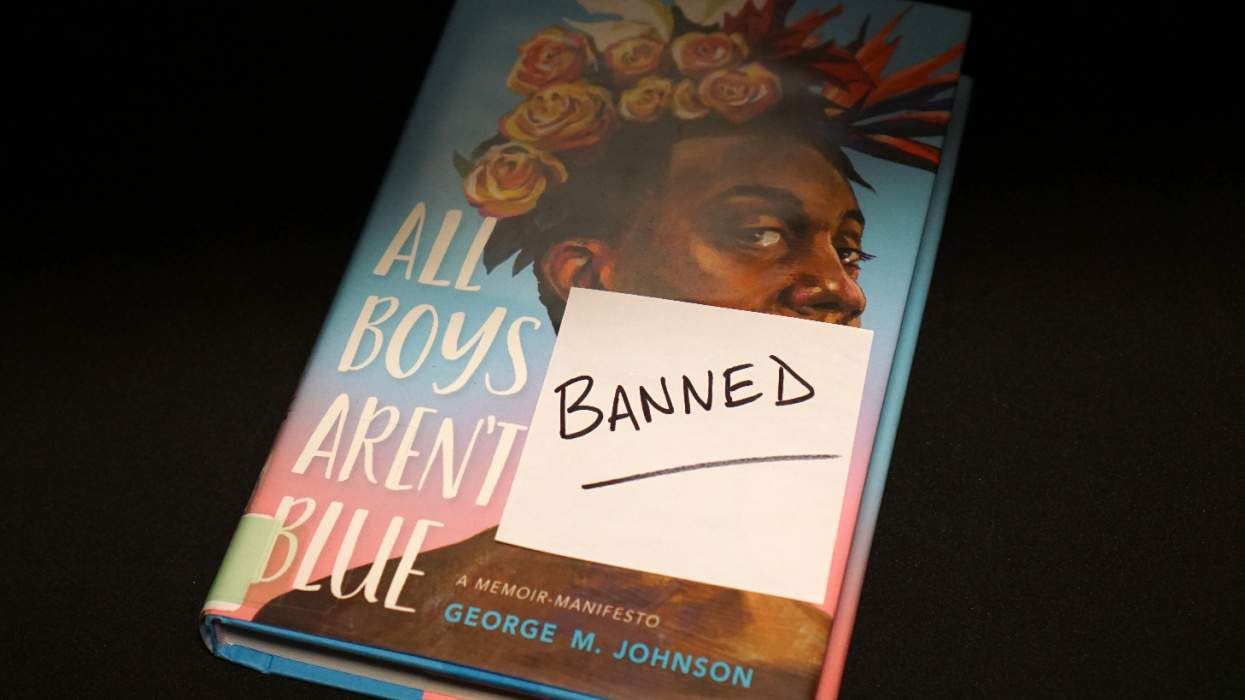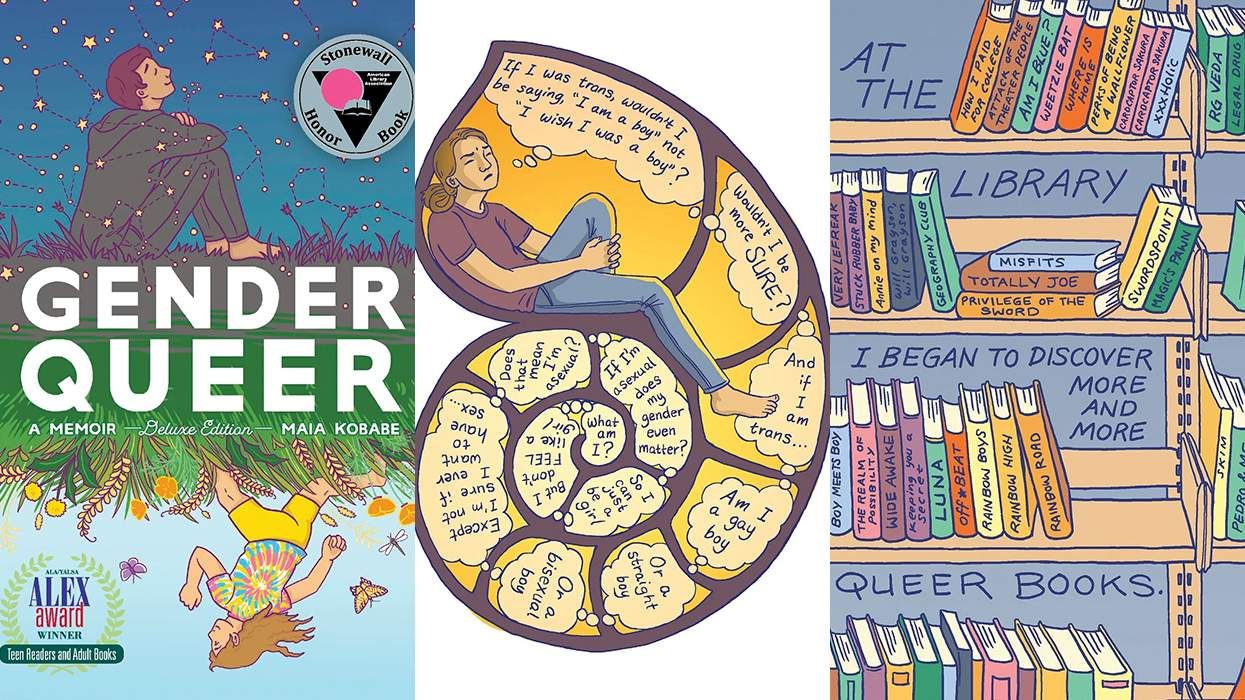At 12, after only a single tennis lesson, Billie Jean King knew that she wanted to be the number one player in the world. But that wasn't her only epiphany that day. "I realized that everybody who played tennis wore white shoes and white clothes, played with white balls. And everybody who played was white. And I asked myself, where is everybody else? So, that was my moment that I dedicate the rest of my life to fighting for equality for everyone. Everything I've done will go back to that moment," she says.
King went on to win 39 Grand Slam career titles and, in the process, she changed the world of sports. An estimated 50 million people around the world watched her defeat Bobby Riggs in 1973 at The Battle of the Sexes. It's hailed as a milestone in terms of the public's acceptance of female athletes, as well as a victory for the larger women's rights movement.
A fierce advocate for gender and LGBTQ+ equality, King led player efforts to support the first professional women's tennis tour in the 1970s, served as the first president of the Women's Tennis Association, was a founding board member for the Elton John AIDS Foundation, and most recently launched the Billie Jean King Leadership Initiative in 2014.
To celebrate the release of her autobiography, All In (available now), Billie Jean King spoke with the LGBTQ&A podcast about her legendary tennis career, being outed in 1981, and why she didn't feel comfortable with her sexuality until she was 51.
You can read an excerpt below and listen to the full interview on Apple Podcasts.
Jeffrey Masters: Becoming a professional tennis player wasn't a career path that existed for women when you were starting out. How were you thinking about what was possible for a career in tennis?
Billie Jean King: It was amateur and I didn't like that because I grew up around pro sports. Pro meant you were really good at what you did and amateur means it was a hobby. So, I wanted was to change the sport as far as it becoming a professional sport. There were none, really. No options as a child for girls. And today there's still many more options for boys.
What really happened though, what really changed my life, my epiphany, was when I was 12. I was just daydreaming one day and I realized that everybody who played tennis wore white shoes and white clothes, played with white balls. And everybody who played was white. And I asked myself, where is everybody else? So that was my moment that I dedicate the rest of my life to fighting for equality for everyone. Everything I've done will go back to that moment, that epiphany, at 12-years old.
JM: You wrote that you get a "churning in your gut" when you have to talk about being a lesbian. Is that still true today?
BJK: No, I wouldn't say so much now. Occasionally, from the past, I'll get a gut reaction, but I also think it depends on the audience you're around that you can kind of size up things very quickly.
JM: When did that churning go away?
BJK: I wasn't comfortable until I was 51. That's a long haul. I felt very straight as a young person, though. I had no idea. I mean, I feel like men's bodies...probably that's who I'm going to look at when someone walks in the room. It's the emotional stuff for me.
And I like being a gay woman. I love the word gay because it means happy. And I like happy, happy, happy. And lesbian is OK, but I don't get the same fun from that word that I get from being a gay woman. I just like it because it feels happy. And I think we should be happy and can be happy.
JM: If you weren't outed in 1981, putting yourself back in that mindset and time period, are you able to say or predict when you might have come out?
BJK: I have no idea, but if you set the scene in the '70s, no one had come out yet. Glenn Burke was a Dodger. He was gay. The media knew it, but never wrote about it. I think I was the first one that was outed in '81. And I told the truth, which my PR people did not like. And I said, "No, I'm going to tell the truth." Oh my God, it was just a knockdown drag out fight over the phone. And I mean, it just was hours, and hours, and hours. And I just said, "No."
You cannot believe in today's society, at least the situation I'm in, that this ever happened. It's like a bad dream. And yet I lived it day after day. And when we started the tour, because I was chosen as the leader and I happened to be the number one player around that time, too, I was told if I talk about anything that we wouldn't have a tour. So, this wasn't just about me. This was about a lot more than just me.
JM: In the book, you mentioned Sally Ride, the astronaut who came out in her obituary. Could you have seen yourself doing something similar?
BJK: No, I would have done it before...no, I would have done it. No, I was trying to figure that out. Now I wanted to come out because I thought it's my truth, it's the right thing to do, and also it's part of equality. My twelve-year-old epiphany that everyone, all of us, each human being needs to be respected and loved for who they are and to be comfortable in their own skin. Also, when you can be your authentic self you know you've arrived. You can be your full self. You can do your best at work.
One by one, we just have to keep fighting and have respect for ourselves, respect for others. Every time I meet a person, I always remind myself to have total respect for them until, over time, I have a different opinion, but I always start with a blank piece of paper.
Bettmann / Wimbledon 1973
JM: You've been with your partner, Ilana Kloss, for over 40 years, but didn't publicly acknowledge the relationship until you'd been dating for 27 years. Even though you were publicly out, why was it important to you to keep that relationship private?
BJK: The challenge had been, we had to hide for so long. I would go give a speech and go, "Well, I want to acknowledge you." And she says, "Don't." So it became a habit. I still catch myself. I'll go, "My God. I mean, what am I doing?" It's amazing how we got in this habit of hiding.
Martina Navratilova came to me right after I was outed in May of '81. She came to me during Wimbledon and said, "This guy at The Daily News is going to out me. What should I do?" I always remember saying, "Well, if you can, and if you feel comfortable enough, you need to control the message. I think it's better if you can come out on your own terms."
JM: You were outed, and similarly before that, your abortion was made public without your knowledge or consent. Did it make you feel like every private moment in your life would eventually be made public?
BJK: Oh yes. I felt very naked and vulnerable and it's a horrible feeling. And I know a lot of people out there have felt this themselves because everybody's journey is unique and difficult. I don't think anyone ever has an easy journey in life. I think we just have to stay happy and gay, but also be truthful and live and feel whatever we're feeling is OK. But I would not say it's been easy. I think if you choose to be a pro athlete it's going to be more public. That's the deal. That's the downside, I guess.
My dad was fantastic. He believed in me as much as my brother, which was really important. To all the men out there who have daughters, if you will believe in her as much as your son, you're going to be ahead of the game because usually the men are our first heroes. Our mothers, eventually, I think, become our sheroes.
JM: Regarding Renee Richards, the tennis player who is trans, you admit to not knowing very much about being transgender back then, but that didn't stop you from advocating for her and letting her play.
BJK: She was on the tour back in '77. I think women's tennis was the first to have a transgender person in sports. And we welcomed her, although it took a little bit of effort. The women were up in arms. Well, we can't have her. The locker room is going to be terrible, blah, blah, blah.
I said, "Well, why don't we just take a breath and a beat and let's just see." So then I called Renee and I listened to her for four hours. And then I went to doctors and asked their opinions. And then there was a ruling that she is a transgender woman and she should be allowed to play. And I went to the women and I said, "You know what? She's going to play no matter what, but I just think...how about if we give her two weeks?" They said, "Okay, we'll try that for two weeks."
Within two days, they're coming up to me, "She's the greatest. She's so nice. She's so smart. Oh my God. I'm so glad she's on the tour." So it's amazing how we get fearful of something that we don't know anything about.
JM: During these high-pressure matches at the Olympics, Wimbledon, the Battle of the Sexes, are you still able to enjoy playing? Is it still fun at that level?
BJK: I have this saying: pressure is a privilege. I came up at that one. As a child, my brother and I liked pressure, but I think it's because my parents gave us time and space. They did not care if we were any good. They didn't ask us, "Did you win?" You know how many parents go, "Did you win?" Well, that's not a good way to start with the kid. They'll tell you how they did, believe me.
We just loved what we did. Still, I just love hitting a tennis ball. And I didn't hit a tennis ball probably for 25 years. I've had a lot of knee operations. Last October I said to Ilana, "Would you hit the ball to me one day?" And we've been hitting ever since. In fact, we're going to hit later today. So I love to hit the ball. I love the magic of feeling the ball against the strings. I love the way you shape time and space. It's like dance to me, although I can't dance anymore.
JM: At 77 you still love and play tennis.
BJK: I always loved it. Well, there's no way I could have gotten through all the pressures on and off the court if I hadn't loved it. I love it. I love hitting the ball. The first day I played tennis is when I realized I can hit a hundred balls in five to 10 minutes. How many times do you think you touched the ball when you played baseball or softball? You hardly touch it. You touch it, what? Five times if you're a shortstop. Five times. In tennis, I can hit 100 in the same amount of time.
I've actually started to take photos just from the apartment in New York because we have a nice view. I like the moon and the sun so much because...I know this is corny, but I don't care because I like love. All of us look at the same moon and sun every day. So I feel very connected to people when I look at them.
Listen to the full podcast interview on Apple Podcasts or Spotify.
Billie Jean King's autobiography, All In, is available now.
LGBTQ&A is The Advocate's weekly interview podcast hosted by Jeffrey Masters. Past guests include Pete Buttigieg, Laverne Cox, Miss Major Griffin-Gracy, and Roxane Gay. New episodes come out every Tuesday.
















Charlie Kirk DID say stoning gay people was the 'perfect law' — and these other heinous quotes
These are some of his worst comments about LGBTQ+ people made by Charlie Kirk.